US, UK, France Reiterate Iran Must Never Develop Nuclear Weapons
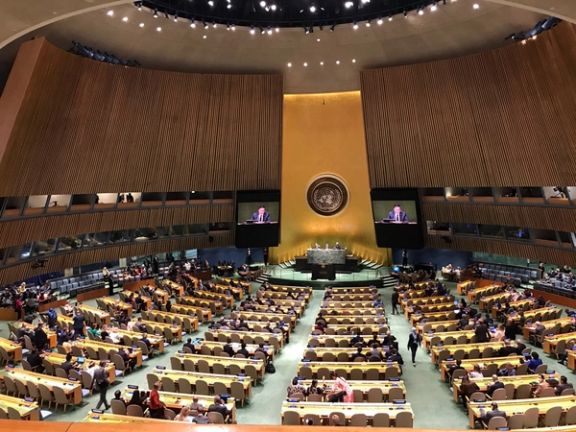
The United States, France, and the United Kingdom have reiterated their position that the Islamic Republic should never achieve the capability to build nuclear weapons.

The United States, France, and the United Kingdom have reiterated their position that the Islamic Republic should never achieve the capability to build nuclear weapons.
In a ministerial statement released for the Tenth NPT Review Conference on Monday, the countries said the Nuclear Non-Proliferation Treaty has reduced the risk of a devastating nuclear war, and further reduction of that risk must be a priority for all NPT states parties and for this Review Conference.
Reiterating that Iran must never develop a nuclear weapon, the statement read, “We are committed to addressing regional proliferation crises wherever they arise.”
They expressed regret that, despite intense diplomatic efforts, Iran has yet to seize the opportunity to restore full implementation of the Joint Comprehensive Plan of Action (JCPOA), urging Tehran “to return to full implementation of the JCPOA and UNSCR 2231 and to cooperate on an urgent basis with the IAEA in resolving questions related to possible undeclared nuclear material and activities in Iran as required under its NPT-required safeguards agreement.”
“Nuclear weapons, for as long as they exist, should serve defensive purposes, deter aggression, and prevent war. We condemn those who would use or threaten to use nuclear weapons for military coercion, intimidation, and blackmail. Such actions are profoundly dangerous and contrary to the purposes of the NPT and the UN Charter.”
All NPT Parties, nuclear-weapon States or non-nuclear-weapon States, have a duty both to demonstrate and to promote responsible behavior and restraint to advance all three pillars of the treaty: disarmament, nonproliferation and peaceful uses of nuclear energy, science, and technology, they said.
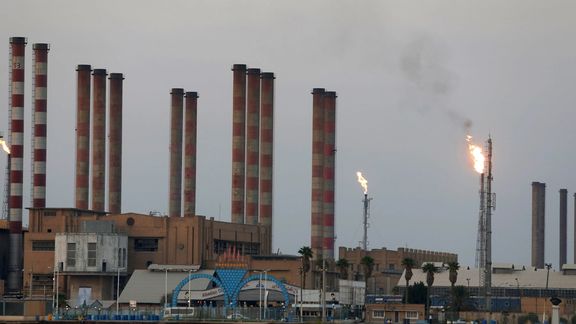
The United States Treasury Monday sanctioned Chinese and Emirati companies it said were involved in the sale of Iranian petroleum and petrochemicals.
The action – under Executive Order (EO) 13846, signed by President Donald Trump in August 2018 – was followed later Monday by Behrouz Kamalvandi, spokesman for the Atomic Energy Organization of Iran, announcing Tehran’s latest steps beyond the limits of the 2015 Iran nuclear deal, the JCPOA (Joint Comprehensive Plan of Action).
Kamalvandi said Iran was feeding fuel into “hundreds” more IR-1 & IR-6 centrifuges – devices used to enrich uranium – as part of a plan for a capacity of at least 190,000 SWU (separative work units), a measurement of efficiency in enrichment. Under the JCPOA Iran was allowed only 6,104 of the less advanced 6,104 and no IR-6s.
The US petrochemical designations came the same day as President Joe Biden and Secretary of State Antony Blinken said they remained committed to restoring the JCPOA. It is unclear whether the Biden administration is trying to increase pressure on Tehran to make concessions in nuclear talks, appeasing domestic critics of the talks, or is moving towards a ‘Plan B’ should it deem the talks over.
‘Tens of millions of dollars’ worth’
The Treasury designations target companies over dealings with Iran’s Persian Gulf Petrochemical Industry Commercial Company (PGPICC), “one of the nation’s largest petrochemical brokers, to facilitate the sale of tens of millions of dollars’ worth of Iranian petroleum and petrochemical products from Iran to East Asia.”
The companies were Blue Cactus Heavy Equipment and Machinery Spare Parts Trading, based in the United Arab Emirates; Farwell Canyon, and PZFNR Trading, both Hong-Kong based; Golden Warrior Shipping, and Shekufei, both based in China; and Singapore-based Pioneer Shipmanagement.
Any assets held by the companies in the US may now be impounded, while persons or entities dealing with them worldwide may be subject to US penalties.
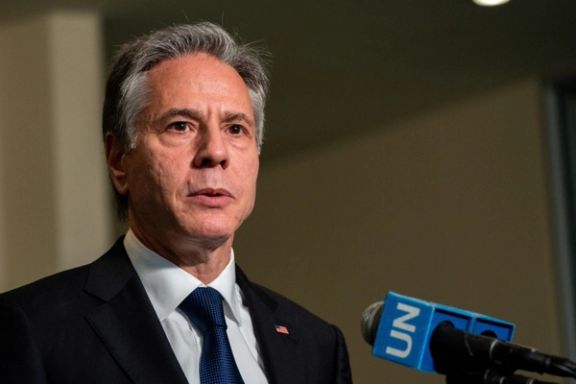
Monday’s action follows criticism of the Biden administration – which it disputes – for allegedly not being assertive against those trading with Iran. Many US ‘secondary sanctions,’ including under EO 13846, give discretionary rather than obligatory powers to the administration.
The Wall Street Journal reported Sunday that the US was pondering designating a British-Iraqi man over the sale of Iranian disguised as Iraqi oil, while the US last month designated companies from China, the UAE, and Vietnam allegedly linked to Iranian petrochemicals.
Iran’s petrochemical exports have held up under US ‘maximum pressure,’ although figures of $12 billion exports in the year ending March 2022 are questioned. Monday’s Treasury statement linked Blue Cactus to Triliance, which it said despite being designated under EO 13946 in January 2020 “remains one of Iran’s most important petrochemical brokers, brokering the sale of Iranian petrochemicals to foreign purchasers.”
Biden – ‘lead by example’
Biden Monday released a statement, ahead of the Tenth Review Conference of signatories of the Nuclear Non-Proliferation Treaty, saying the US as part of a commitment to “lead by the power of our example” had “developed a proposal to secure a mutual return to full implementation of the Joint Comprehensive Plan of Action to ensure that Iran does not acquire a nuclear weapon.”
Blinken said during discussions at the New York conference that the US regarded reviving the JCPOA as “the best outcome for the United States, Iran and the world.” Iran’s foreign ministry spokesman earlier in the day said overcoming differences in long-running talks to revive the JCPOA, which the US left in 2018, depended on Washington.
The US blames Iran for failure to bridge differences, which center on which US ‘maximum pressure’ sanctions violate the 2015 agreement and what steps Iran need to take to return its nuclear program, expanded since 2019, to JCPOA limits.

A number of former and current US officials have decried the Islamic Republic’s harassment of New York-based dissident journalist and women’s rights activist Masih Alinejad.
Senate Foreign Relations Committee Ranking Member Jim Risch (R-Idaho) described the continued Iranian harassment of Alinejad as “outrageous,” referring to the man armed with a loaded AK-47 who was arrested outside her Brooklyn home on Thursday.
Praising Alinejad’s unrelenting fight for the rights of Iranian women, he said, “Her steadfast commitment to fighting the Iranian regime and standing up for human rights should be an inspiration to us all.”
“I was honored to meet her last year after the Iranians attempted to kidnap her,” he added, referring to an international kidnapping plot orchestrated by Iran’s intelligence network last year.
White House national security spokesperson John Kirby also condemned the apparent attempt to harm the rights activist, saying that this is an open criminal investigation and “while we wait to see the results of this investigation, we want to reaffirm it is the first priority for President Joe Biden to counter threats posed by Iran.”
Echoing similar sentiments, former State Department Spokesperson Morgan Ortagus said on Sunday that “The Iranian regime is threatening to assassinate our leaders. Now their radical followers are stalking Iranian dissidents and trying to kill them here too."
Calling for travel restrictions against Iranian delegations’ visit to UN headquarters in New York and also for closure of Iran’s Interests Section in Pakistan's Embassy in DC, she said “There's no reason for this arrangement while the regime increases its assassination attempts on our soil.” “We need to kick all Iranian operatives and 'diplomats' out of America now.”
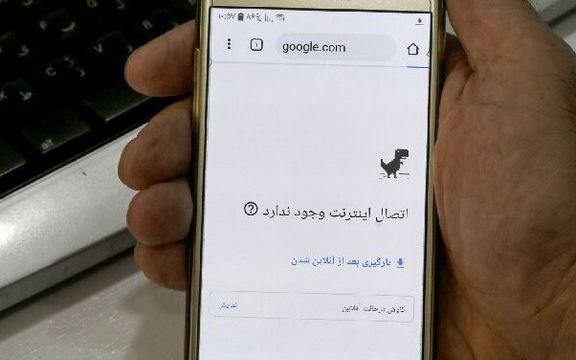
Following days of disruption in internet services in Iran and conflicting explanations by authorities, cyberspace watchdog NetBlocks has confirmed a loss in national connectivity.
NetBlocks, which monitors cybersecurity and the governance of the internet, said on Monday, “A significant internet outage has been registered in Iran affecting cellular and fixed-line services including Irancell and the TIC gateway; real-time network data show national connectivity at 79% of ordinary levels; incident ongoing.”
Iran’s Telecommunication Company announced that the widespread disruption was caused by a fire in one of the infrastructure facilities. A few days ago, the ministry of information and communications technology had blamed power fluctuations and out-of-date infrastructure at the country’s Electricity Distribution Company for the issue, a claim that the power company denied.
It is not clear what happened in Iran's internet distribution center that the authorities are perhaps trying to hide, but one of the Islamic Republic’s policies to cover up sabotages is obfuscation through conflicting statements that cannot be confirmed or denied.
Iran has been heavily censoring access to the Internet for the past 20 years to restrict citizens’ access to information. Many foreign and Iranian websites, including news media websites, are already blocked in Iran although controls are readily sidestepped by VPNs (virtual private networks) and anti-filtering software.
Since a few months ago, hardliners in the parliament are pushing to ratify a bill to further restrict internet and social media access, and reportedly launch a domestic intranet, whose content can be supervised.
Late in July, Iranians were outraged by a government move to forcibly activate Safe Search on Google for all citizens.
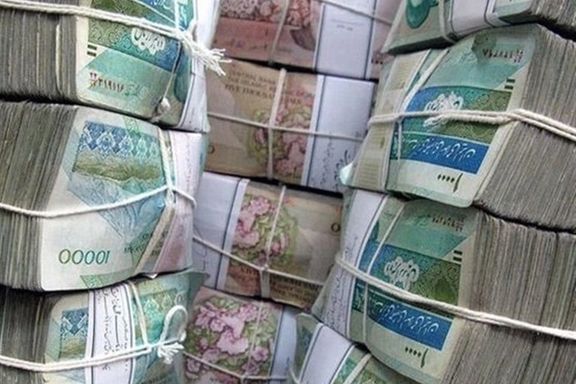
Annual food inflation has reached 100 percent in parts of Iran, according to the latest figures published by the Statistical Center of Iran (SCI) in late July.
The overall nationwide point-to-point annual food inflation rate in June 2022 compared with the same period in 2021 was 87 percent, SCI reported last week, but in four provinces the rate reached almost 100 percent.
Most of the price increases happened since early May when the government scrapped a food import subsidy to save around $15 billion annually. The move immediately triggered a massive rise in prices for basic food staples, such as bread, dairy products, cooking oil and meet.
Although the government has repeatedly said its oil exports are steadily increasing despite sanctions by the United States, economic conditions keep deteriorating, with overall annual inflation reaching 54 percent in June.
However, Iran has not made a decisive move to reach a nuclear agreement with the US, which could lift oil export sanctions and boost government revenues.
When the government stopped the import subsidies it promised to issue coupons to people with lower incomes to buy essential food items at lower prices, but so far, no system has been set up to issue coupons.
Aftab News in Tehran said Monday that the government is planning not to issue coupons offering lower prices but aims to limit how much food people can buy. This would create new political tensions even among the hardline supporters of the government. The website adds that food prices will never go down, and on the contrary inflation can only get worse.
Another major problem during US sanctions is the fast growth in Iran’s money supply, which has climbed to upwards of 50 quadrillion rials. That is 50 with fifteen zeros. In free market exchange rate this amount would be around $200 billion, simply because the Iranian currency has lost so much of its value. If we take the exchange rate before the United States imposed sanctions in 2018, the liquidity in Iran would be equivalent to 1.5 trillion dollars.
Mahmoud Jamsaz, an economist in Tehran told Khabar Online news website on July 31 that in the past Iranian year, from March 2021-to March 2022, the government has been printing the equivalent of $15 million a day to finance its budgetary shortfall. That is 3.8 trillion rials every day.
Despite assurances by President Ebrahim Raisi’s (Raeesi) government that it has stopped printing money, Jamsaz insisted that simply the format of government borrowing has changed, not the fact that it is adding to the money supply. This in turn fuels more inflation, impoverishing tens of millions of people who were modest wage earners or members of the middle class, able to live relatively comfortable lives before.
The economist explained that government finances this year are in a worse situation compared to last year, because the budget has been built on two unrealistic revenue projections.
The biggest expectation is close to five quadrillion rials of oil income, twice as high as what materialized last year, while US sanctions are still in place and the war in Ukraine has made Russia a competitive to Iran in the oil market.
The second optimistic figure is tax revenues estimated to be 62 percent higher than last year. This is unrealistic because the economy is not growing to allow so much more tax collection.
This was confirmed by the Supreme Accounting Office of the state in July that said just 15 percent of expected oil revenue came into the treasury from March to May.
Jamsaz, like other economists says that the Raisi government holds “the record in both high inflation and money supply” in nearly three decades.
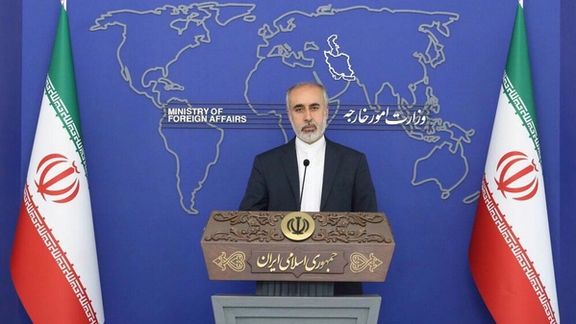
Following days of protests at Iraq’s parliament against Iran’s interference in the country’s politics, Tehran says it respects the choice of the Iraqi people.
Speaking in his weekly press conference on Monday, Iran’s foreign ministry spokesman Nasser Kanaani said that stability in the region depends on the stability in Iraq.
Emphasizing that dialogue is the best way to solve Iraq’s domestic problems, he said, “we are confident that with the maturity of the Iraqi people, and the tact by the Iraqi leaders, the country will pass this phase well and we will witness increasing stability and peace in Iraq.”
Describing Iraq as Iran’s “big and important neighboring country,” Kanaani said Tehran follows the developments there carefully and attaches significant importance to the security of this “important friendly and brotherly neighbor.”
“We believe that Iraqi political movements and parties and organizations can overcome the current situation in a peaceful way... within the framework of the constitution and legal mechanisms of the country and help the country’s development and progress through forming a popular government,” he added.
On Sunday, July 31, influential Iraqi Shiite cleric Muqtada al-Sadr -- who seeks to curb the influence of the Islamic Republic of Iran in Iraqi politics -- called on his supporters to join thousands of others who have camped at the parliament to prevent the formation of a new government, saying that now is the best time to change the political system and constitution. “This is a great chance for radical change to the political system. Don’t miss your chance."